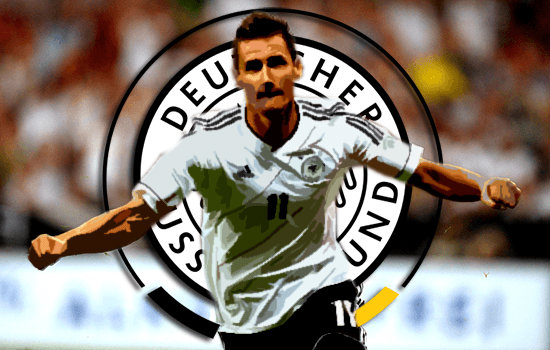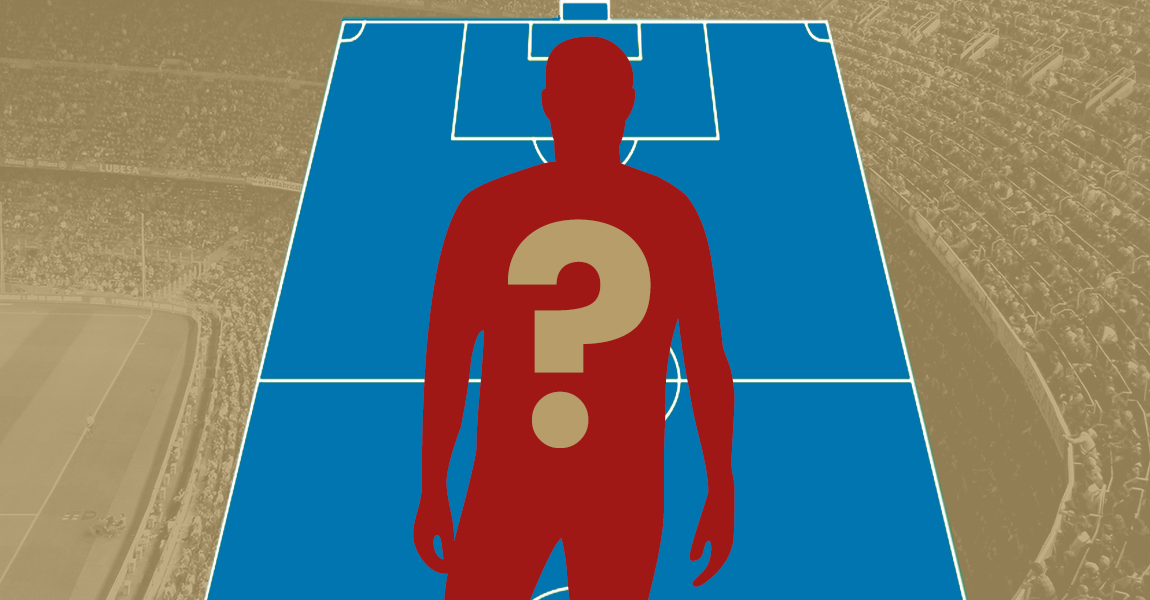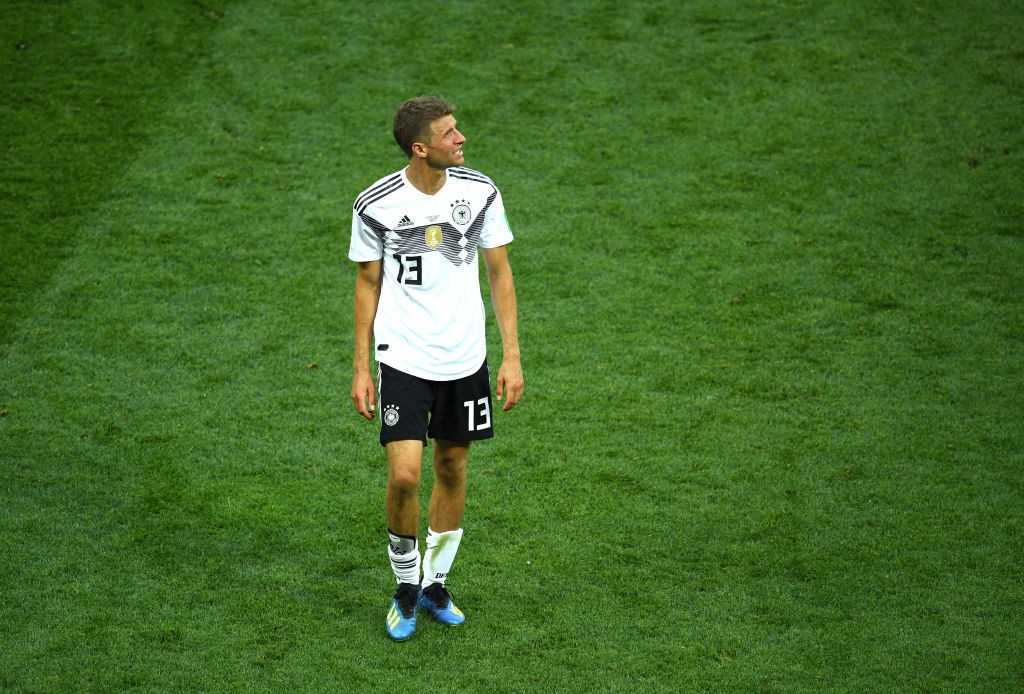
Throughout the ages the World Cup has been a platform for some of footballs finest players to write their names in the history books. Each tournament is unique from the others and there is always one player who stands out above the rest. The exploits of Diego Maradona in 1986 for Argentina and Zinedine Zidane in ’98 for France are two prime examples of the individual brilliance on display at footballs showcase event. These individuals are all glittered in glory and fame but very few, if any, have contributed to the World Cup as consistently and meaningfully as Germany’s Miroslav Klose.
The Polish born Klose made his debut for the German national side back in March 2001 in what would be the start of one of the most prolific international careers of all-time. Just a year later he rose to prominence at the 2002 World Cup where he ended the tournament as the joint second highest goal scorer with 5 goals (all of which came from headers). Klose’s goals, which included a hat-trick against Saudi Arabia, would drive the German side forward to the final where they would fall agonizingly short of the prestigious title, losing 2-0 to a Ronaldo inspired Brazil.
Four years later at the 2006 World Cup, Klose was back and more motivated than ever. The then Werder Bremen star had ended the domestic campaign as the league’s top goal scorer and was without a doubt Germany’s key man heading into the tournament. With his confidence at an all-time high, Klose once again dominated the opposition as he led Germany’s charge with another five tournament goals – the most important of which was a late equaliser against Argentina in the quarter finals which ultimately helped Germany progress. It would be his last contribution in front of goal though as the Die Mannschaft fell out at the hands of Italy in the semi-finals. The national team had once again fallen short of the mark by ending third, but for Klose it was a tournament to remember as he collected the Golden Boot award for his goal scoring efforts.
Klose was selected for his third consecutive World Cup in 2010 and at 32 years of age, many felt that it would be the tall centre-forward’s last shot at the elusive trophy. Playing in the tournament in South Africa also provided Klose with the opportunity to break a unique record, and become the World Cup’s all-time top goal scorer. Sadly, he missed out on both. It was not all in vain though as his four goals throughout the tournament took his tally to 14 World Cup goals and thus equalled the national record of German legend Gerd Müller. The milestone arose against Argentina and was a doubly special occasion for Klose as he also celebrated his 100th appearance for the German national side. At the close of the tournament, Klose all-but acknowledged that his chance of breaking the record held by Ronaldo had passed him by but stated that he would never give up on the hope of one more shot.
It was a hope that held him in good stead as Klose, now nearing 36, was named in the squad for the upcoming FIFA World Cup in Brazil. The striker, who is the only player to have scored four or more goals at three separate World Cups, is now faced with what will surely be his final opportunity to overtake Ronaldo at the helm in the World Cup record books – and two goals in Brazil is all Klose needs to achieve this incredible feat. The goal scoring record is not the only milestone within reach though as Klose may also become the tournaments all-time leading appearance maker if Germany are to make it to the Final/Third Place Play-Off (provided he features throughout).
One last shot at eternal glory awaits Klose and should he fail, he may well go down as being one of the greatest players never to have won the World Cup. But breaking these records or winning the World Cup would all be a bonus. The acrobatic entertainer that is Klose will always be regarded as one of the tournaments finest ever strikers. With a heart of steel, a burning passion and goals aplenty, he is the pride of his nation and is without a doubt a true World Cup hero.
This article was written by Liam Bekker. Follow him on Twitter @BekkersBlog
- 2016-17 Rule Changes: An interview with Dr. Errol Sweeney - July 6, 2016
- Scout Report | Stephane Sparagna: Marseille’s combative young centre-back - December 22, 2015
- Remember the name: Goal scoring machine, Ruud van Nistelrooy - July 6, 2015

























































